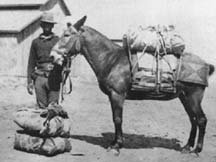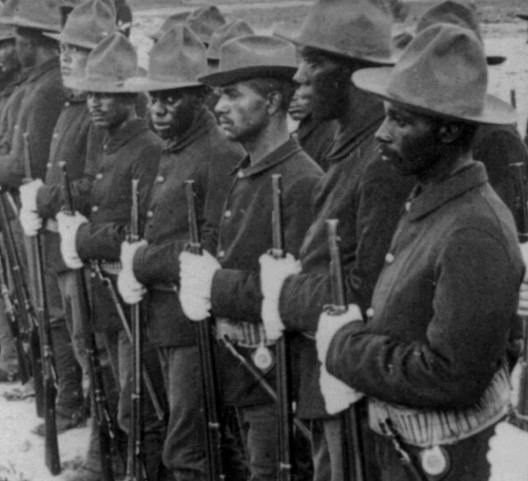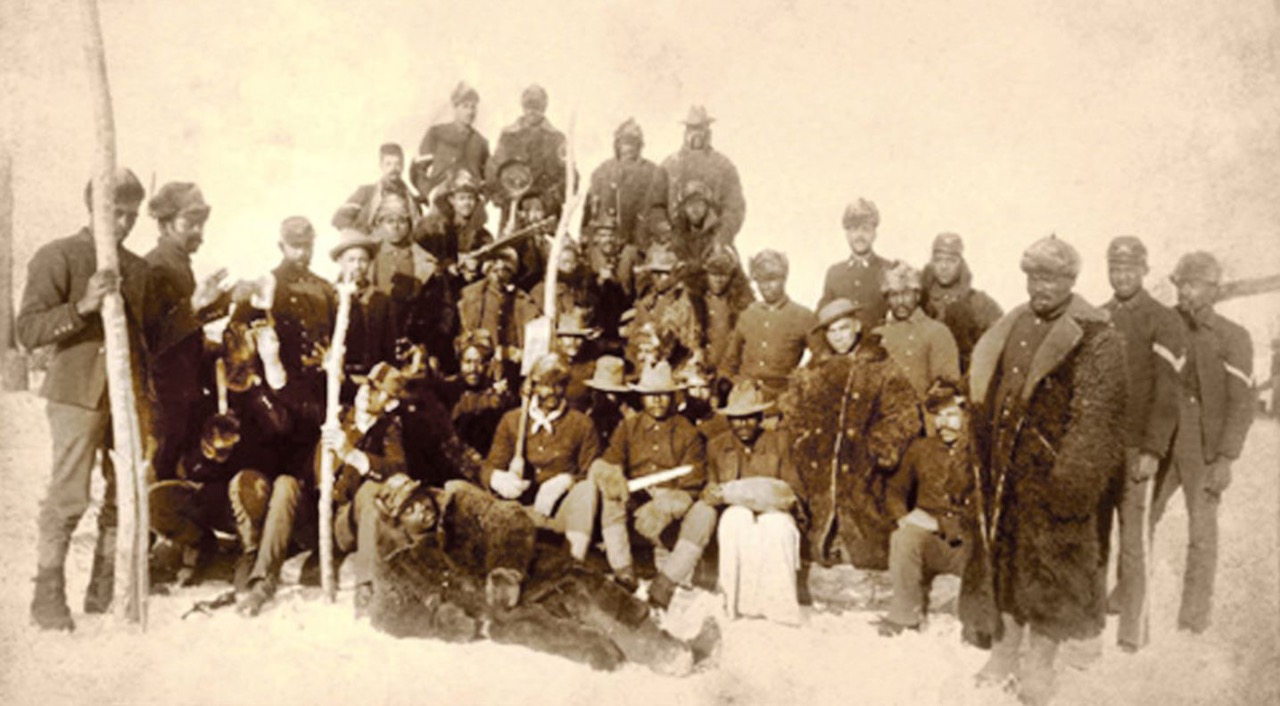The Buffalo Soldiers of Georgetown
The first peacetime all-Black regiments in the U.S. Army were established by Congress in 1866. These were the legendary Buffalo Soldiers of the 9th and 10th U.S. Cavalries and the 23rd and 24th U.S. Infantries – and at least four of them are buried in the New Zion Cemetery.

 It was the Native Americans who gave these troops their name, dubbing them Buffalo Soldiers for reasons lost to history, although one theory suggests it conveyed a sign of respect. Native Americans revered the buffalo and considered the soldiers to be fierce and brave in battle. Calling them “buffalo” was a way to honor them.
It was the Native Americans who gave these troops their name, dubbing them Buffalo Soldiers for reasons lost to history, although one theory suggests it conveyed a sign of respect. Native Americans revered the buffalo and considered the soldiers to be fierce and brave in battle. Calling them “buffalo” was a way to honor them.
Serving primarily on the western frontier, Buffalo Soldiers were taske with capturing cattle rustlers and protecting settlers and stagecoaches and were involved in skirmishes and battles with Native Americans.
They had a seven-day workweek (with time off only for Christmas and the Fourth of July) that included patrols in unforgiving climates, sometimes as long as six months and covering as much as 1,000 miles. Additionally, back at the fort, they had a never-ending regimen of drills, inspections and parades. Their pay? $13 a month.
Living conditions were harsh for all soldiers, with broken down, vermin-infested barracks. There was no such thing as practicing good hygiene as the only available bathing facilities was likely the local creek. Chow consisted of beef, potatoes, beans, bacon, possibly some fresh vegetables if available from the post garden. Water was oftentimes scarce. Soldiers in general faced all manner of diseases – tuberculosis, dysentery and more; the Buffalo Soldiers in particular had the added burden of racial discrimination.
The Buffalo Soldiers were involved in many missions. Besides their work on the western frontier following the Civil War, they helped protect national parks,
fought at the Battle of San Juan Hill during the Spanish-American War, defended the Mexican border during World War I and trained for combat during World War II. In May of 1944, the 9th and 10th Cavalry Regiments were deactivated.
True to the name given them by Native Americans, they were heroic and courageous and had a highly distinguished record of service. Buffalo soldiers had the lowest military desertion and court-
martial rates of their time and many won the Congressional Medal of Honor for combat valor above and beyond the call of duty.
Learn more about these men at the “Buffalo Soldiers of the Western Frontier” exhibit at the Kentucky Horse Park.
Read about another “mystery unearthed” here – this one involving a 50-year-old crime that remained unsolved for three decades.


